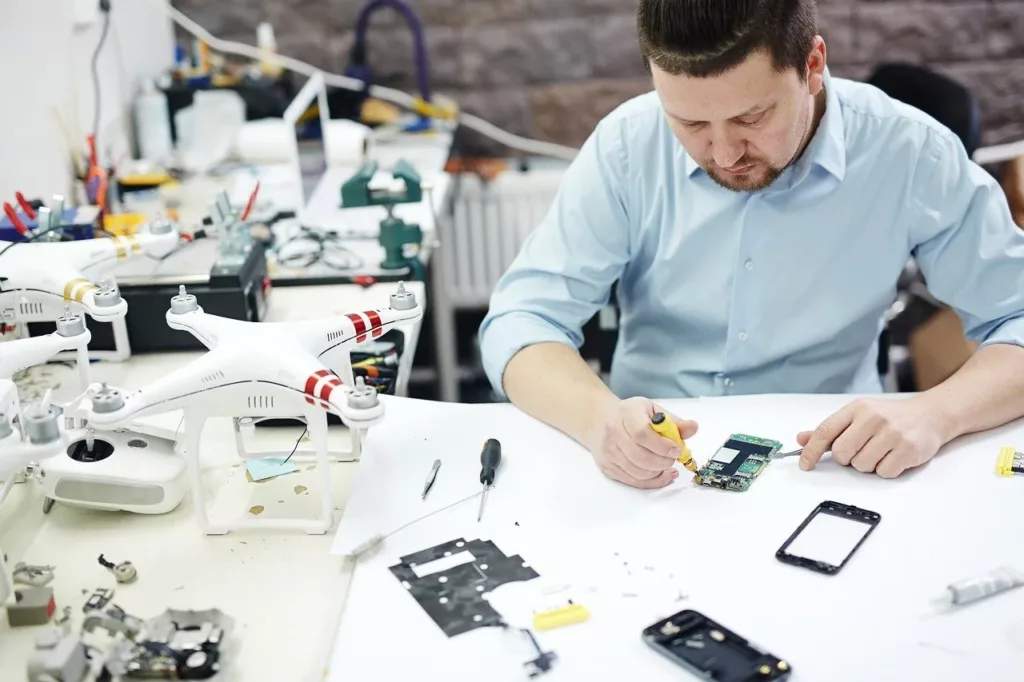Samsung has come under scrutiny following revelations about its stringent requirements for independent repair shops. A recently leaked contract indicates that Samsung mandates these shops to share customer data and report on the use of aftermarket parts, raising significant privacy and consumer rights concerns.
Samsung’s Control Over Independent Repair Shops

In a contract obtained by 404 Media, Samsung requires independent repair shops to provide detailed customer information in exchange for access to repair parts. This information includes the customer’s name, contact details, phone identifier, and the nature of the complaint. Moreover, the contract stipulates that these shops must “immediately disassemble” any phones previously repaired with third-party parts and notify Samsung about the use of such parts.
Data Sharing and Privacy Concerns
The contract also compels repair shops to upload repair details daily into Samsung’s G-SPN database. This data includes customers’ addresses, email addresses, phone numbers, warranty status, and device identifiers. Experts have criticized this requirement as an invasion of consumer privacy, arguing that most customers are unaware of their personal information being shared with the manufacturer.
Legal and Ethical Implications
John Bergmayer, legal director at Public Knowledge, highlighted that the requirement to disassemble phones with third-party parts goes beyond merely preventing counterfeits. It directly infringes on consumers’ rights to use aftermarket parts, protected under the Magnuson-Moss Warranty Act. Aaron Perzanowski, a property law expert, also expressed concerns about the lack of transparency and consent regarding data sharing, describing it as a significant invasion of privacy.
Impact on Right to Repair Movement
The leaked contract underscores the level of control Samsung exerts over so-called independent repair shops, which must sign this agreement to access Samsung’s repair parts. This agreement does not even elevate these shops to the status of “authorized” repair centers, which would require further compliance with Samsung’s stringent conditions.
Kit Walsh, a staff attorney at the Electronic Freedom Foundation, emphasized that such one-sided agreements illustrate the need for robust right-to-repair laws. These laws, enacted in states like New York, Minnesota, and California, prohibit manufacturers from imposing such onerous conditions on repair shops. Walsh also pointed out that the excessive data collection and restrictive repair practices harm both consumer rights and the environment by discouraging repairs and leading to more electronic waste.
Additional Requirements and Restrictions
Apart from sharing customer data and reporting aftermarket parts, the contract restricts the types of repairs these shops can perform. It does not permit repairs involving soldering or board-level fixes, which are increasingly common. Additionally, shops must obtain certification from WISE, an organization that has lobbied against right-to-repair laws, effectively forcing shops to fund efforts against their interests.
Industry Reactions and Future Outlook
Nathan Proctor, senior director of U.S. PIRG’s Campaign for the Right to Repair, condemned the contract, calling it an example of why right-to-repair laws are essential. He noted that customers do not expect repair technicians to report them for using aftermarket parts and stressed the need for legislation to protect both consumers and independent repair shops.
Despite Samsung’s public acknowledgment of the inevitability of aftermarket parts use, as stated by Paul Walker at the Electronics Reuse Conference, the contract reveals a contradictory stance. Samsung’s demands for disassembling devices with third-party parts and notifying the company indicate an ongoing reluctance to accept such practices genuinely.
Conclusion
The leaked contract between Samsung and independent repair shops highlights significant concerns regarding consumer privacy, rights to use aftermarket parts, and the necessity for right-to-repair legislation. As the right-to-repair movement gains momentum, it is crucial for consumers to be aware of these issues and for lawmakers to enact protections that ensure fair and transparent practices in the repair industry.
More Updates: Technology News – Mobile


